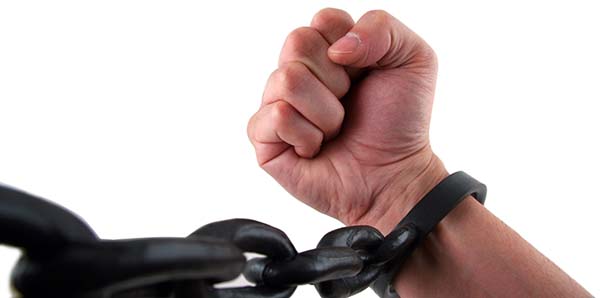Since the dawn of man, cavemen have strived to find the best cave dwelling for their needs. Mike, a caveman, has always looked for the best women with the longest hair to club and drag around. He has spent considerable time finding and creating good clubs to use as weapons for his hunting expeditions. But then one day, Mike saw John’s cave. He had more cave space, more women and more clubs. Mike began to feel a new sensation – that he wanted what John had for himself. He proceeded to club John, knocking him out and dragging him to Mike’s cave. Mike now resides in his new cave with wonderful amenities. This is when man first discovered jealousy.
What did John do wrong? How did he discover how to make people jealous? Chances are, he didn’t even do it on purpose. John didn’t know he was going to be clubbed that day and dragged off to a new, but smaller, cave. He was simply going about his business. It was something in Mike that changed. It was something Mike felt and acted on. He saw something he wanted more than what he already had, and he forcefully took it. He had no regard for that fact that it didn’t belong to him. The jealousy never existed inside of John, it only existed in Mike. It was because of what Mike felt he didn’t have that he felt he had to forcefully take it from someone else. John had no intentions on how to make people jealous. He was innocent.
Of all the emotions humans show, jealousy is one of the most common and unsettling. It tends to bring out the worst in us, even though most of us know better.
Does jealousy make us forcefully do things? Hopefully not. But it does make us feel things based on what we don’t have. Would it be fair to say that jealousy is a kind of ‘victim’ state of being? Yes! Any time we feel we cannot do, be or have something and we have ill feelings about someone else having it, we initiate a victim state of awareness in ourselves.
What if we saw what we wanted, and instead, we got excited - not jealous - about the idea that we could have that too? Be it a nicer cave, nice relationship, or a nice car? Hmm…interesting! How can two people see the same thing that they want, and one person feels the need to covet it, steal it, or just feel jealous about it, while in the other person, feelings of positive desire, excitement and motivation to go out and get it, arise from within?
I believe that we either choose to be victims or choose to be creators. And we can recognize this by our simple reactions. If we feel we cannot create, we might just feel jealousy – but not always. If we feel we can create what we want, we might feel positively ignited by the idea that we can have it, and begin going after it.
There is a story “Dog in the Manger” derived from an old Greek fable. It appears as illustrating a moral proposition: People frequently begrudge something to others that they themselves cannot enjoy. Even though it does them no good, they won’t let others have it. Listen to a fable about such an event. There was a wicked dog lying in a manger full of hay. When the cattle came and wanted to eat, the dog barred their way, baring his teeth. The cattle said to the dog, “You are being very unfair by begrudging us something we need which is useless to you. Dogs don’t eat hay, but you will not let us near it.” The fable shows that it is not easy to avoid envy; with some effort you can try to escape its effects, but it never goes away entirely.
A popular misconception about jealousy is that it is the same as envy. In fact, the feeling of envy refers to wanting something that someone else has, such as a fast car or a luxury house. Jealousy, however, is more aptly described as the fear of losing something – a lover, promotion, friend, etc. – to someone else.
Jealousy isn’t really a response to seeing your partner with someone else, at least not directly. It says more about your own security or insecurity than it does about the actions of your partner.
Since jealousy usually has its roots in some other emotion, such as fear of loss or feelings of rejection or insecurity or whatever, then often the only way to cope with the jealousy is to deal with the underlying emotions. If you find that your jealousy is rooted in fear, for example, the next step is to explore why you are afraid? What you are afraid of? And if there is anything you can do to allay that fear. Confronting the jealousy without addressing the things that lie beneath it is often an exercise in frustration.
Once you’ve identified the feelings beneath the jealousy, the next step is to ask yourself: what are these feelings serving? Are they serving a legitimate interest? Are they trying to warn you of a real problem, or are they serving only themselves? This can be very tricky, especially with an emotional response like fear. Fear can serve as a legitimate warning of a valid danger, but fear also tends to try to protect itself. If you’re afraid of something with no reason, your fear will try to persuade you that it’s valid and you have cause to be afraid.

